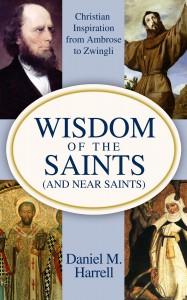Today’s guest post comes from Aubrey Hogan, one of an excellent class of students from Bethel Seminary who recently studied the intersection between theology and science.
Evolution has much of American Christianity scared and defensive. What was once sacred and true will be lost if evolution is accepted. Stories that were once concrete are now abstract mythological shells of their former selves.
But perhaps evolutionary theory is doing Biblical interpretation a great favor by deconstructing our assumptions and forcing us to reconstruct interpretations that not only jive well with God’s revelation through science but also are more true to the authorial intent of scripture.
Evolution has forced us to ask questions about the authenticity, nature, and authority of scripture that otherwise might have gone unasked. Our kneejerk reaction has been to try to a fit the square peg of science into the round hole of scripture, but it doesn’t take long to realize that creates the complication of either shaving off the sharp edges of science or reshaping our once well-rounded theology. Neither option seems to offer both faithfulness and intellectual integrity, so we are forced to either compromise Biblical authority or grapple with the reality that maybe we have projected false assumptions onto scripture.
If all truth is God’s truth then evolution shouldn’t require us to make a major shift for how we rethink the Bible, rather it is just another piece of the puzzle in God’s revelation of himself.
Historically this hasn’t been a major problem until the last 200 years or so. This is because the most challenging scientific developments are relatively recent. St. Paul and Augustine didn’t have to wrestle with the implications of the human genome project. Christian theologians could get along just fine without ever having to encounter many of our own projections onto scripture. Evolution came along and helped reveal some of those projections, and if we want to continue to pursue an honest reading of scripture we have the task of wrestling with and removing some of our projections from Biblical interpretation.
Ancient Near Eastern scholars, like Peter Enns and John Walton, have done just that by trying to understand the Genesis story through the lens of its implied audience.
The Bible was given by God to ancient people to answer ancient questions, not to modern people trying to answer scientific questions.
When we look at the historical and cultural background of the Ancient Near East and Paul’s setting in the first century, those things work together to push us to think about what it means to read the Bible well. By reading it in a way comprehensible to the ancient world we better understand how the early Israelites would have read it or how Paul, centuries later, would have understood it when writing to the Romans or Corinthians.
“The controversy of evolution and the historicity of Adam will actually push the church to understand Biblical literature for what it is and not what we want it to be for ourselves.” – Peter Enns – “We constantly make the assumption that the word of God has to speak my language, but it doesn’t.”
Evolutionary theory has unintentionally encouraged us to read the Bible for what it is, and all that it is worth. It allows the Bible to better speak for itself rather than allowing us speak into the Bible. By deconstructing a large part of what our modern mindset brings to the table, our understanding of the theology and the intended truth conveyed in Scripture will be strengthened and enhance the depth of its influence on our lives.
As science progresses it will hopefully continue to critique our modern projections and encourage a strengthened and nuanced understanding of our sacred theological text.











